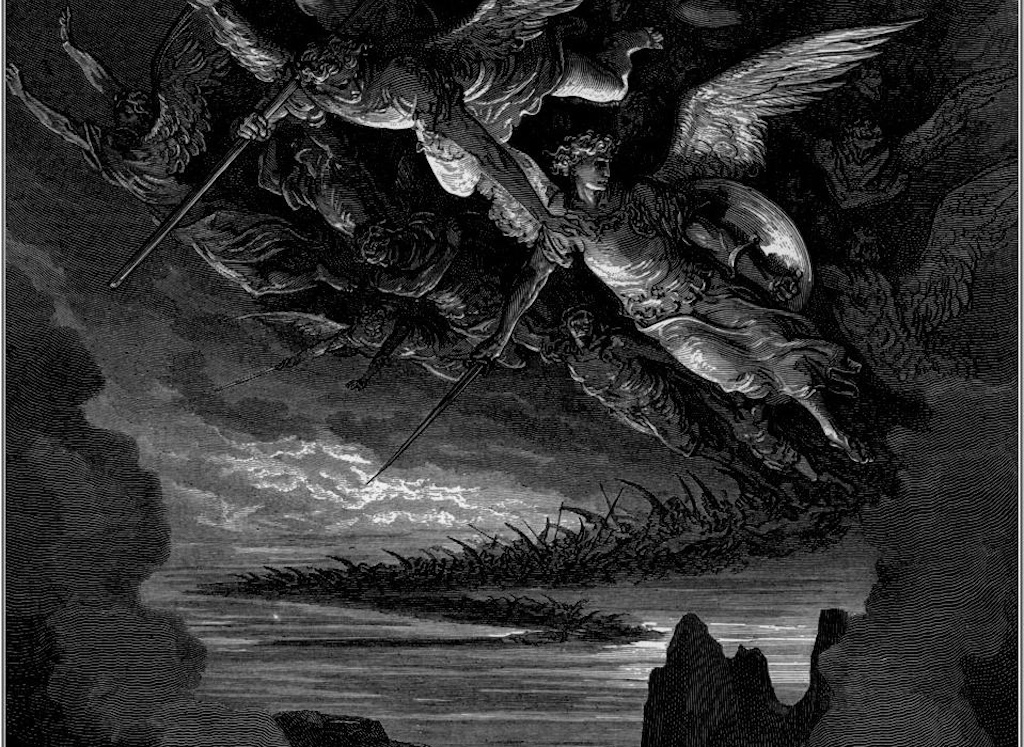The Book of Enoch is an ancient religious text that has captivated the minds of scholars and believers for centuries. Its content is both mystical and prophetic, containing a wealth of information about Jewish beliefs and practices during the Second Temple period. However, despite its historical significance, the Book of Enoch is not included in the Hebrew Bible or the Christian Old Testament. Instead, it is considered to be part of the Apocrypha by some Christian denominations. In this article, we will explore the origins of the Book of Enoch and its place in the Apocrypha. We will also examine its influence on early Jewish and Christian thought, as well as its relevance in modern biblical studies.
Seemore: Why Stay Away from the Book of Enoch
Enoch’s Ascension and Divine Revelation

According to the Book of Enoch, the authorship of the text is credited to Enoch, the great-grandfather of Noah. Enoch is described as a righteous man who walked with God and was taken by Him into heaven without experiencing death. This ascension was said to have occurred when Enoch was 365 years old, a significant number in ancient Jewish mysticism. It is believed that during his time in heaven, Enoch received divine revelations from God, which he then recorded in the Book of Enoch upon his return to earth.
The book is divided into five main sections, each attributed to a different character in the biblical narrative: the Book of Watchers, the Book of Parables, the Book of Luminaries, the Book of Dreams, and the Epistle of Enoch. The majority of these writings are presented as visions that Enoch receives while being guided by angels. These revelations cover a wide range of themes, including creation, fallen angels, the origins of sin, and the end times.
Themes and Motifs in the Book of Enoch

One of the main themes in the Book of Enoch is the role of angels in human affairs. The book presents a detailed hierarchy of angels, with each class having its own specific duties and responsibilities. The fallen angels, known as the Watchers, play a significant role in the narrative as they are responsible for teaching humans forbidden knowledge and leading them astray. This concept of rebellious angels influencing humanity can also be found in other apocalyptic and mystical Jewish texts, such as the Book of Jubilees and the Dead Sea Scrolls.
Another prominent motif in the Book of Enoch is the idea of divine judgment and punishment. The book describes how God will judge both the fallen angels and humanity for their sins. The punishments for the fallen angels include imprisonment, while humans are warned of a coming flood and a fiery end for the wicked at the hands of the archangels. These themes of judgment and retribution are echoed in later Christian literature, particularly in the New Testament.
The Influence of the Book of Enoch on Jewish and Christian Thought

Despite not being included in the canonical scriptures, the Book of Enoch has had a significant impact on both Jewish and Christian thought throughout history. Many scholars believe that the book played a crucial role in shaping Jewish eschatology, or beliefs about the end times. The book’s influence can be seen in the Dead Sea Scrolls, which contain several fragments of the Book of Enoch, indicating that it was widely read and respected by the Essenes, a Jewish sect living near the Qumran caves.
In early Christianity, the Book of Enoch was also highly regarded and was quoted by several early church fathers, including Tertullian and Origen. The book’s teachings on angels and the end times were especially attractive to early Christians, who saw parallels with their own beliefs. However, as the church became more organized, the book was gradually rejected as heretical and was excluded from the canon.
The Apocrypha: A Collection of Ancient Religious Texts
To understand the Book of Enoch’s place in the Apocrypha, we must first explore what the Apocrypha is and why it is significant. The Apocrypha is a collection of ancient religious texts that were written during the Second Temple period (538-70 BC). These texts were not included in the Hebrew Bible because they were not considered to be divinely inspired by the rabbis who compiled the scriptures. However, they were widely read and respected by many Jews and early Christians.
The Apocrypha consists of 15 books, including the books of Tobit, Judith, and Sirach, among others. These books cover a wide range of genres, from historical narratives to wisdom literature and apocalyptic visions. Their significance lies in their contribution to our understanding of Jewish beliefs and practices during the Second Temple period and their influence on early Christianity.
The Canonical and Non-Canonical Scriptures
To fully appreciate the Book of Enoch’s place in the Apocrypha, we must also understand the difference between canonical and non-canonical scriptures. The canonical scriptures refer to the books that are accepted as authentic and authoritative by a particular religious community. For example, for Jews, the canonical scriptures are the books found in the Hebrew Bible, while for Christians, the canonical scriptures are the books found in the Old and New Testaments.
On the other hand, non-canonical scriptures refer to texts that are not accepted as authentic or authoritative by a particular religious community but still hold significant value and importance. The Book of Enoch falls into this category, as it was not included in the Hebrew Bible or the Christian Old Testament but was highly regarded by both communities for centuries.
The Role of the Book of Enoch in Early Christianity
As mentioned earlier, the Book of Enoch held a prominent place in early Christianity and was even quoted by some early church fathers. However, as the church became more organized, there were growing concerns about its teachings on angels and end times, which contradicted mainstream Christian beliefs. This led to the book’s gradual exclusion from the canon, with some Christian denominations considering it as part of the Apocrypha instead.
The Book of Enoch’s influence on early Christian thought can also be seen in the New Testament, particularly in the Epistle of Jude. In this letter, Jude quotes directly from the Book of Enoch when describing the judgment that will come upon the ungodly. This demonstrates that the Book of Enoch was considered authoritative by at least one New Testament author.
The Book of Enoch and the Dead Sea Scrolls
One of the most significant discoveries in biblical scholarship was the finding of the Dead Sea Scrolls in the mid-20th century. These ancient texts, dating back to the Second Temple period, shed new light on the religious beliefs and practices of Jews living during that time. Among the scrolls, several fragments of the Book of Enoch were found, including portions of the Book of Watchers and the Book of Giants.
These findings have confirmed the book’s widespread influence among Jewish communities during the Second Temple period and its significance in understanding their worldview and theology. The discovery of the Dead Sea Scrolls has also sparked renewed interest in the study of the Book of Enoch and its role in early Judaism and Christianity.
Enoch’s Vision of the End Times
One of the most captivating aspects of the Book of Enoch is its detailed descriptions of the end times. In the Book of Parables, Enoch is shown a series of visions that reveal God’s ultimate plan for the world. These visions include the coming of the Messiah, the judgment of the wicked, and the establishment of a new kingdom of righteousness. These concepts are echoed in the New Testament, particularly in the book of Revelation.
The Book of Enoch’s vision of the end times has also influenced many apocalyptic and prophetic texts throughout history, from medieval Christian literature to modern-day science fiction. Its enduring appeal lies in its ability to provide a glimpse into the future and offer hope for a better world.
The Importance of the Apocrypha in Biblical Studies
In recent years, there has been a growing interest in studying the Apocrypha and other non-canonical scriptures to gain a deeper understanding of the ancient religious beliefs and practices. These texts provide valuable insights into the historical, cultural, and theological context of the biblical narrative and shed light on the development of early Jewish and Christian thought.
The Book of Enoch’s inclusion in the Apocrypha is significant because it highlights the diversity of beliefs within ancient Judaism and Christianity. It also challenges our traditional notions of what constitutes authoritative scripture and forces us to re-examine our understanding of these ancient texts.
Conclusion
In conclusion, the Book of Enoch is undoubtedly one of the most intriguing and influential books in the Apocrypha. Its mystical and apocalyptic nature has captured the imaginations of believers and scholars for centuries, and its teachings continue to inspire and intrigue to this day. While the book may not be included in the canonical scriptures, its significance in shaping Jewish and Christian thought cannot be denied. As we continue to study and explore the Book of Enoch and the Apocrypha as a whole, we gain a deeper understanding of our ancient religious heritage and its enduring impact on our beliefs and practices.
